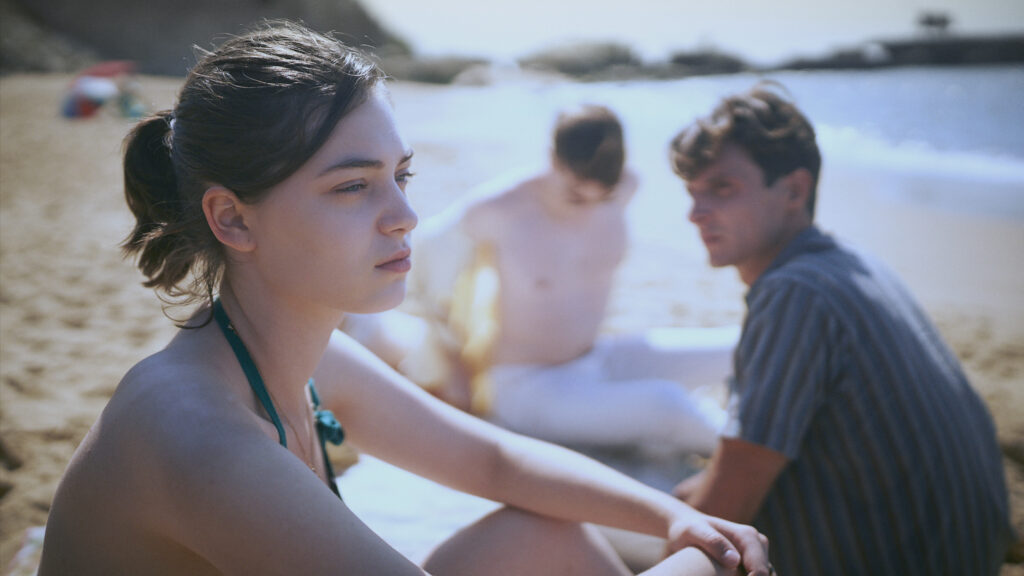Shortly after I watched “Happening,” a French drama about a student trying to obtain an illegal abortion in 1963, a draft Supreme Court decision signaling the overturning of Roe v. Wade was leaked. Prior to the news, I would have called “Happening” unsettlingly prescient. Now, thanks to the leak, I would describe the film as a Hail Mary warning on par with “Show Me a Hero” or “Chernobyl” — grim stories that take us back into the past, draw parallels to the present, and beg us to get our shit together so we can avoid an even bleaker future.
Directed by Audrey Diwan and based on Annie Ernaux’s semi-autobiographical novel, “Happening” is a clear-eyed look at the position women are put in when they are denied the right to decide what happens to their own bodies. Without sensationalization or hyperbole, the film argues that, regardless of its legality or the obstacles surrounding it, there will always be abortion. Unplanned pregnancies will always happen, and there will always be women and folks with uteruses who want to terminate them. Whether abortions are accessible, affordable, or safe — now that’s up in the air.
Of course, “Happening” isn’t the first film to make this point; it joins the canon of movies that sensitively portray the socioeconomic, physical, and emotional burdens of securing an abortion, legal and otherwise, from dramas such as “Lingui, the Sacred Bonds,” “Never Rarely Sometimes Always,” and “4 Months, 3 Weeks and 2 Days,” to comedies including “Unpregnant” and “Grandma.” Where “Happening” particularly excels is in its depiction of the toxic culture protagonist Anne (Anamaria Vartolomei) navigates — in which the criminalization of abortion is just an extension of the overall puritanical attitude toward female sexuality.
Early on in the film, upon learning she’s pregnant, a shell-shocked Anne laments, “It’s not fair.” She’s saying this in response to a doctor informing her of her (lack of) options, but her words could apply to so much more. It’s not fair that she and her friends are sexualized by their male classmates but at the same time are expected to remain virgins until they marry. It’s not fair that the young women feel they must sublimate their desires, to avoid shame and judgment as much as pregnancy. It’s not fair that Anne is in distress and the best her doctor can do is advise her to “accept it. You have no choice.” It’s not fair the boy who impregnates her gets to wash his hands of the situation while she has no off-ramp. It’s not fair that the few people who are interested in helping Anne don’t because aiding someone in getting an abortion could land them in jail. It’s not fair that, in order to end an unwanted pregnancy, young women like Anne must risk their freedom, and sometimes even their lives.
It isn’t fair. But it’s the world Anne lives in, the same world certain slivers of the U.S. population want to return to.
Although it’s basically impossible for me to analyze “Happening” objectively, removed from the context of my own passion for reproductive justice and the situation my country is in right now, I genuinely believe it’s a beautiful film in its own right. Its color composition is reminiscent of a Vermeer painting. The script, by Diwan and Marcia Romano, is sparing in backstory and detail, yet Anne, and the people she crosses paths with on her journey, feel fully fleshed-out. And Vartolomei delivers a star-making performance. Her Anne is a tough cookie, someone who weathers multiple setbacks with a set jaw and zero flinching — yet her large blue eyes suggest that, with each piece of bad news she receives, she does have a breaking point and it is fast approaching.
If you’re approaching yours — I know I am, and I’m not the only one — be sure to see this film. While painful to watch, it’s a sorely-needed reality check. If we want to prevent anyone else from having to go through what Anne experiences in “Happening,” then it’s time to fight like hell.
“Happening” is now in theaters.







